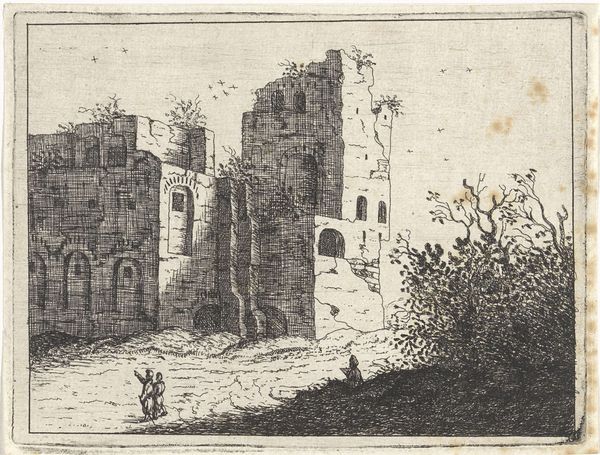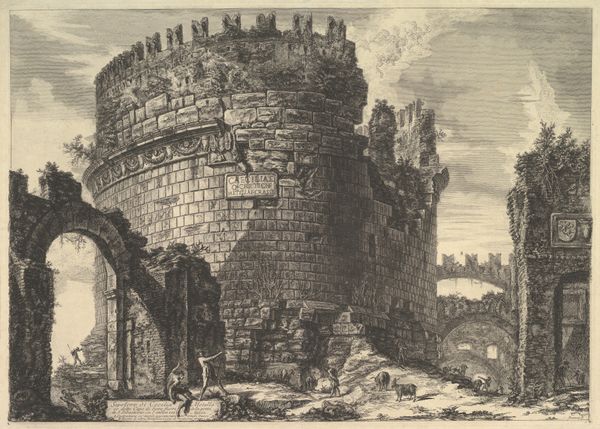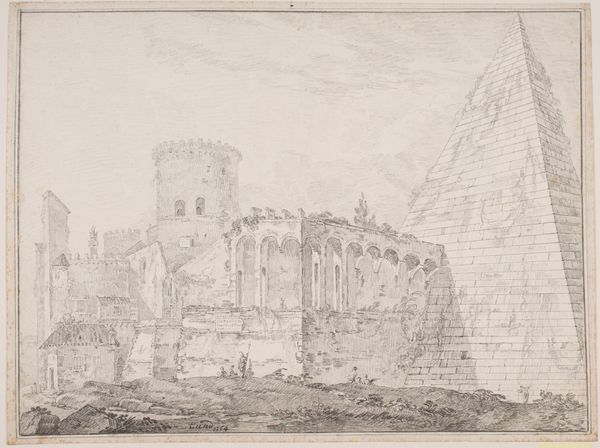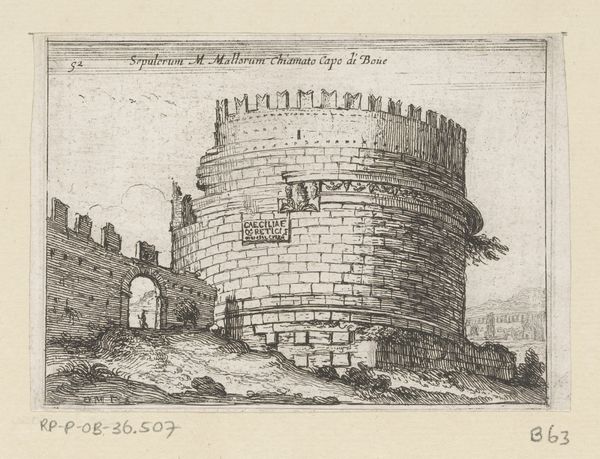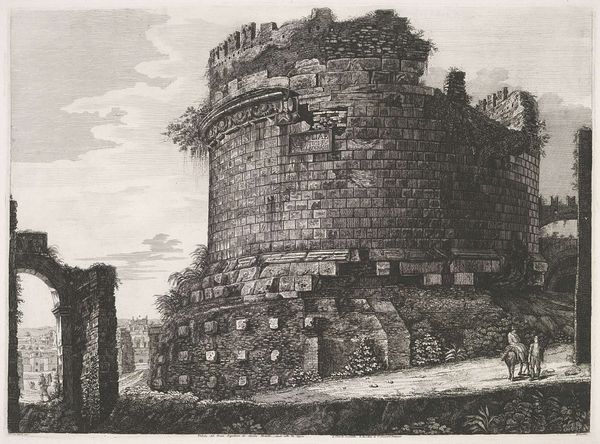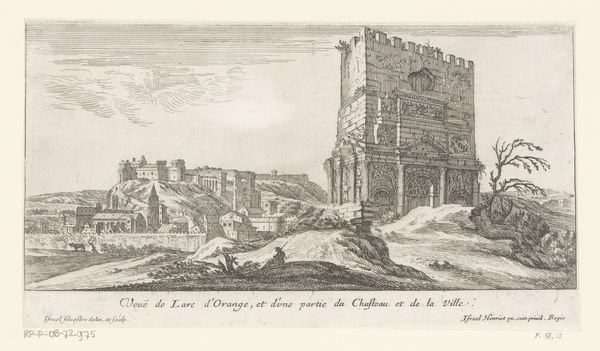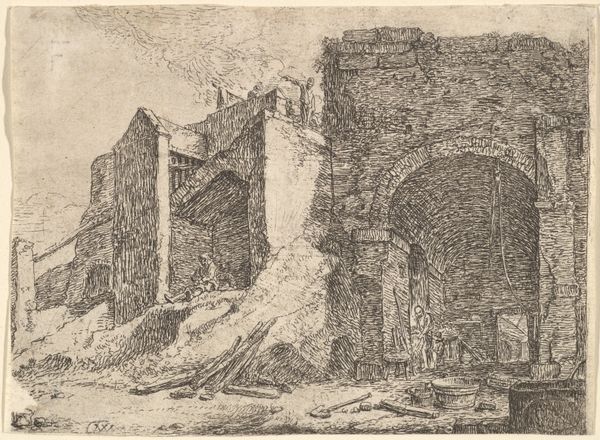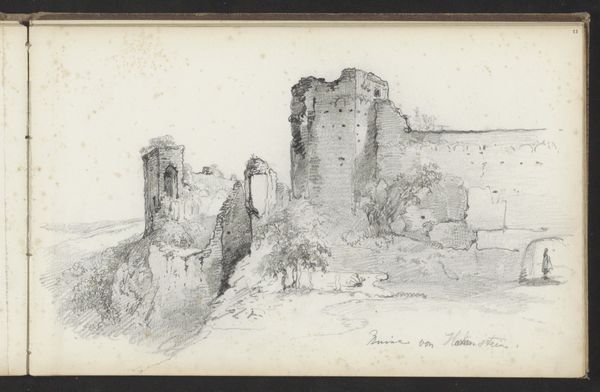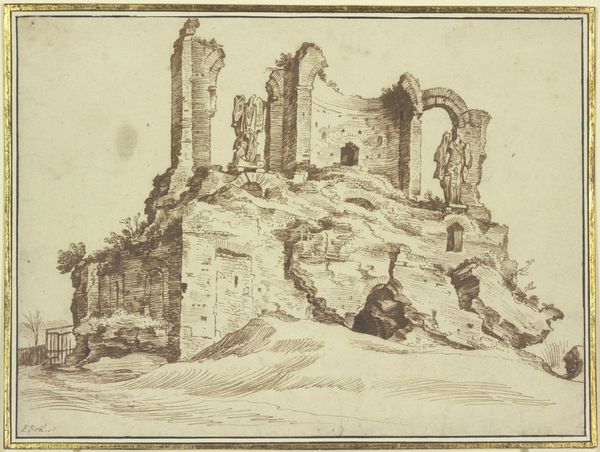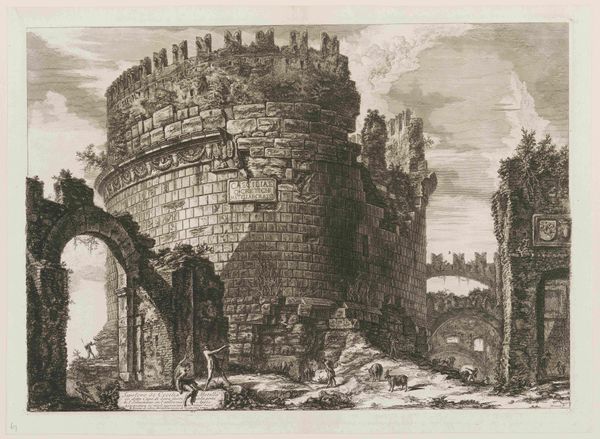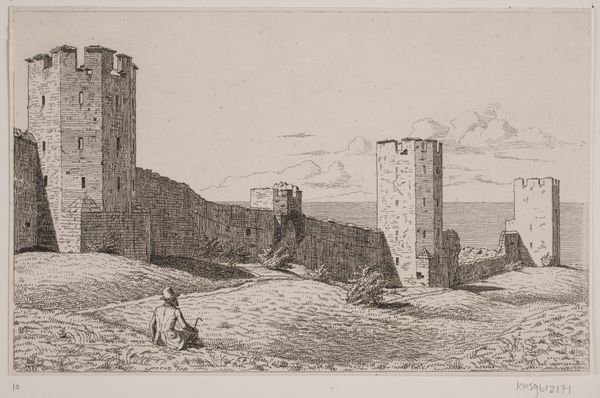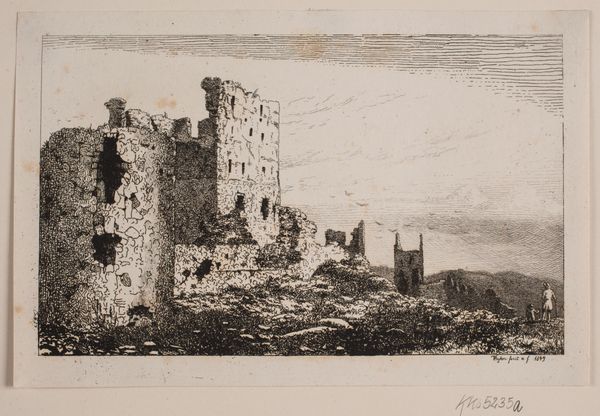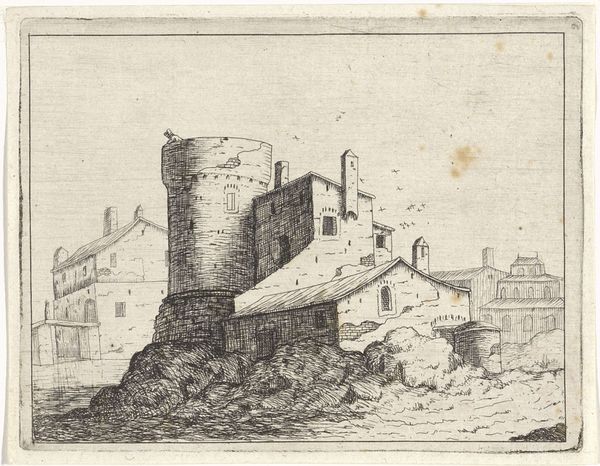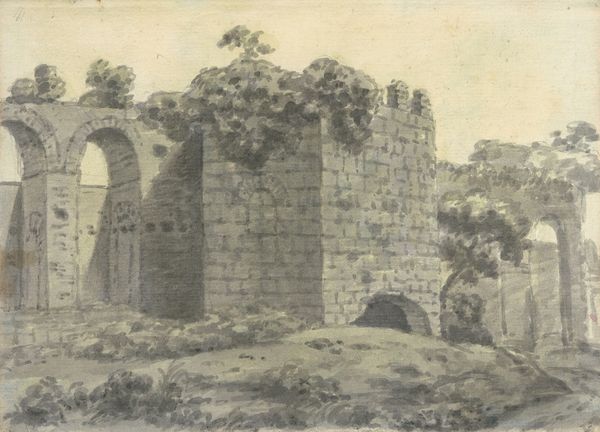
print, etching
#
baroque
# print
#
etching
#
old engraving style
#
landscape
#
etching
#
cityscape
#
history-painting
Dimensions: plate: 11.1 x 14.8 cm (4 3/8 x 5 13/16 in.) sheet: 11.3 x 15.2 cm (4 7/16 x 6 in.)
Copyright: National Gallery of Art: CC0 1.0
Jean Jacques de Boissieu created "Ruins of the Château Saint-Chamond, Loire" using etching, a technique that allows for detailed, linear work. De Boissieu lived during a time of social and political upheaval in France, with revolutionary sentiments building during his lifetime. Here, Boissieu captures the poignant imagery of the ruins with precise lines. A lone figure standing off to the left brings us a sense of the grand history that has passed. What was once strong and imposing is now crumbling and fragile, and the figure reminds us that people are transient too. There's something universally compelling in the visualization of the passage of time, and the transience of human endeavor. In a time where ideas about power and social structures were being questioned, the ruins serve as a reminder that all structures, both literal and metaphorical, are subject to decay. In witnessing this scene, consider how you feel about the ruins, and the lessons they teach us about time, change, and the impermanence of human creations.
Comments
No comments
Be the first to comment and join the conversation on the ultimate creative platform.
